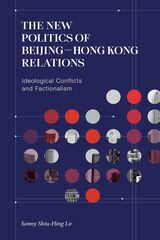
Charisma and Factionalism in the Nazi Party was first published in 1967. Minnesota Archive Editions uses digital technology to make long-unavailable books once again accessible, and are published unaltered from the original University of Minnesota Press editions.
Few aspects of the history of the German Nazi party have had as little scholarly attention as has the nature or pattern of the intraparty factionalism. References to conflicts within the party may be found in most accounts dealing with the Nazi movement, but this book presents the first systematic study of those conflicts and their significance to an understanding of Nazism.
Professor Nyomarkay bases his study on extensive research in which he had access to original source materials, including diaries and memoirs of party leaders and documents from Nazi trials and party archives. His study is concerned with the issues, attitudes, motivations, and actions of the various factions. His conclusions suggest new interpretations of such turning points in the history of Nazism as the Hanover and Bamberg conferences of 1925 and 1926, respectively, the Strasser crisis of 1930, and the stormtrooper purge of 1934.
The author examines the role of Hitler's charisma in the party and shows that this trait elevated Hitler above factional strife, making him the object rather than the subject of rivalries. The discussion of charisma points up the difference between the Nazi factionalism and that which has occurred in other totalitarian movements, such as communism, where authority rests on ideology rather than on charisma.
Through his study Professor Nyomarkay offers a new theory of the relationship between factional conflict and legitimacy of power, presenting a hypothesis of possible typologies of factional behavior based on the nature and degree of group cohesion.
The book is important for students of political science and history and particularly for those interested in totalitarian movements and comparative political parties.

The rural inhabitants of this region have had some of their most important dealings with their nation’s government as self-identified “peasants” and “Maya.” Using ethnography, oral history, and archival research, Armstrong-Fumero shows how the same body of narrative tropes has defined the local experience of twentieth-century agrarianism and twenty-first-century multiculturalism.
Through these recycled narratives, contemporary multicultural politics have also inherited some ambiguities that were built into its agrarian predecessor. Specifically, local experiences of peasant and indigenous politics are shaped by tensions between the vernacular language of identity and the intense factionalism that often defines the social organization of rural communities. This significant contribution will be of interest to historians, anthropologists, and political scientists studying Latin America and the Maya.

The New Politics of Beijing–Hong Kong Relations particularly examines the paternalistic authoritarianism that can be seen in Beijing's policy toward Hong Kong since the promulgation of the national security law in late June 2020. Lo analyzes the ideological shift from liberal nationalism to conservative nationalism on the mainland Chinese side since late 2012. The increasingly radical localism on the Hong Kong side after 2014 altered Beijing-Hong Kong relations and introduced factional struggles. While the imposition of the national security law into Hong Kong in late June 2020 has stabilized the city politically, Beijing's policy toward Hong Kong is now guided by the principles of protecting its national security and maintaining economic pragmatism, with implications for Beijing's relations with Taipei in the coming years.
READERS
Browse our collection.
PUBLISHERS
See BiblioVault's publisher services.
STUDENT SERVICES
Files for college accessibility offices.
UChicago Accessibility Resources
home | accessibility | search | about | contact us
BiblioVault ® 2001 - 2024
The University of Chicago Press









